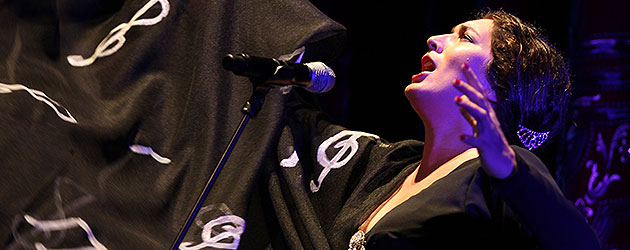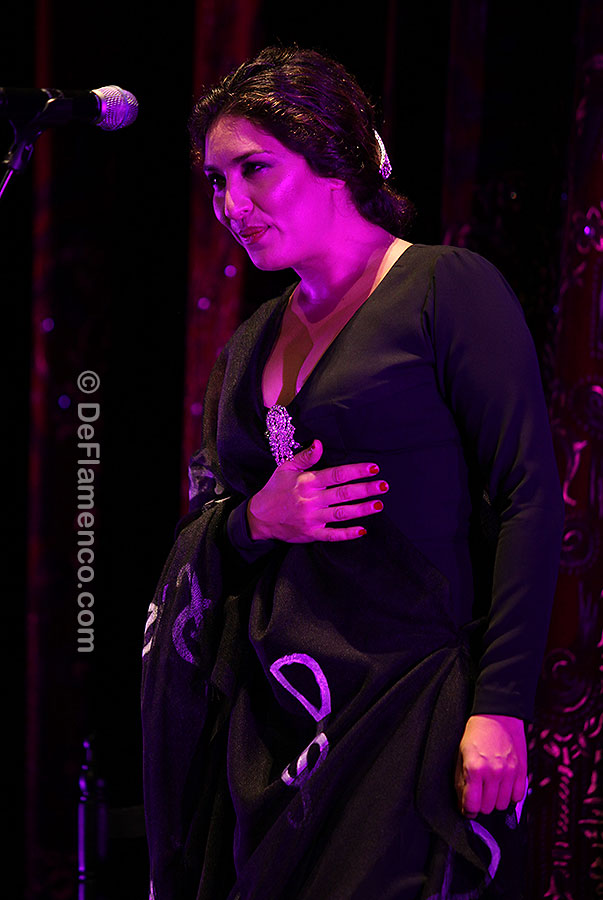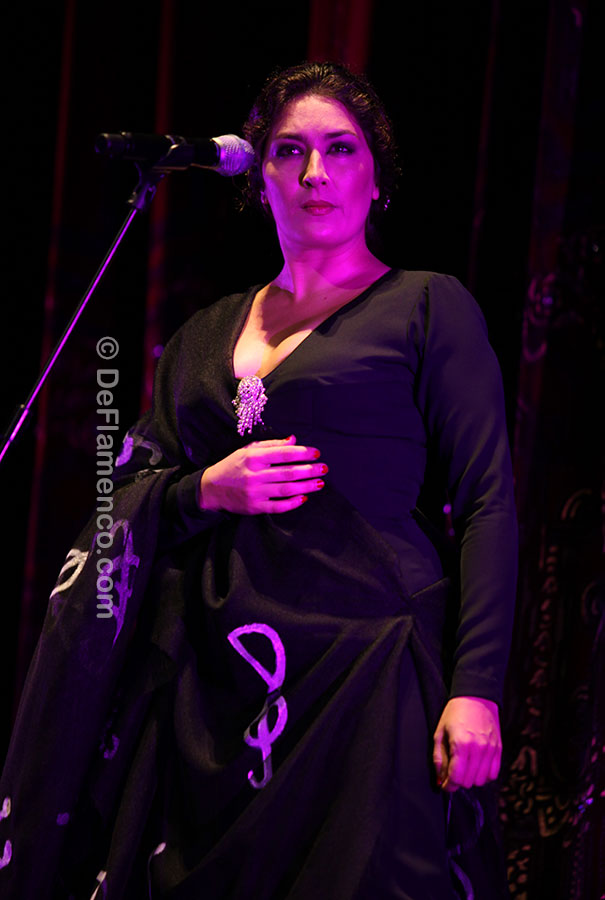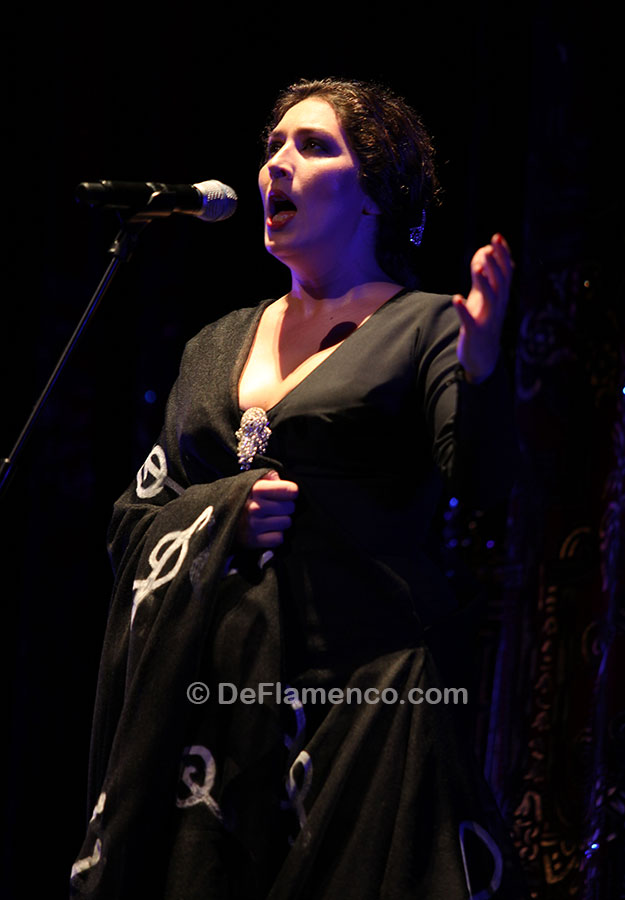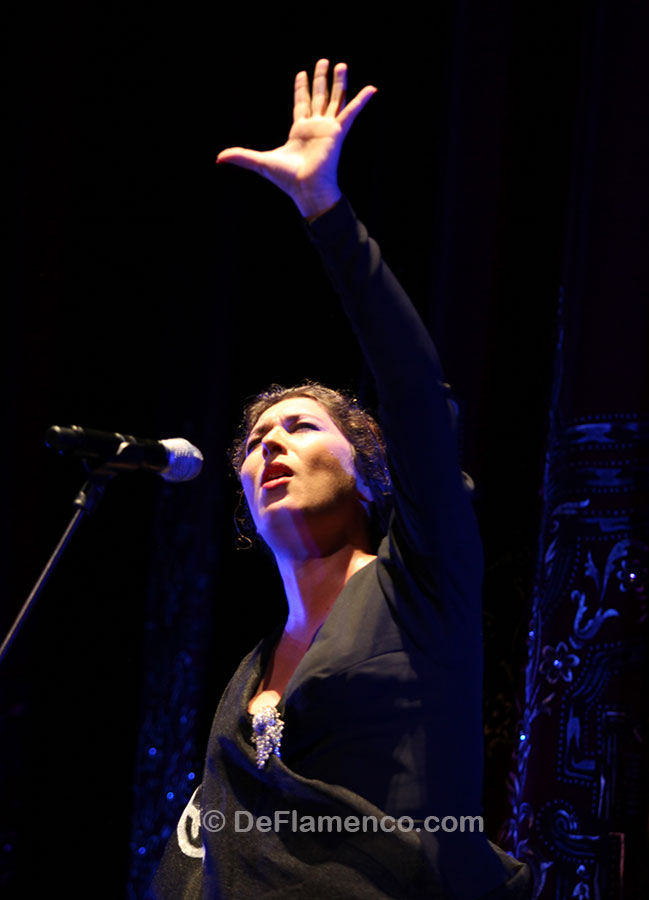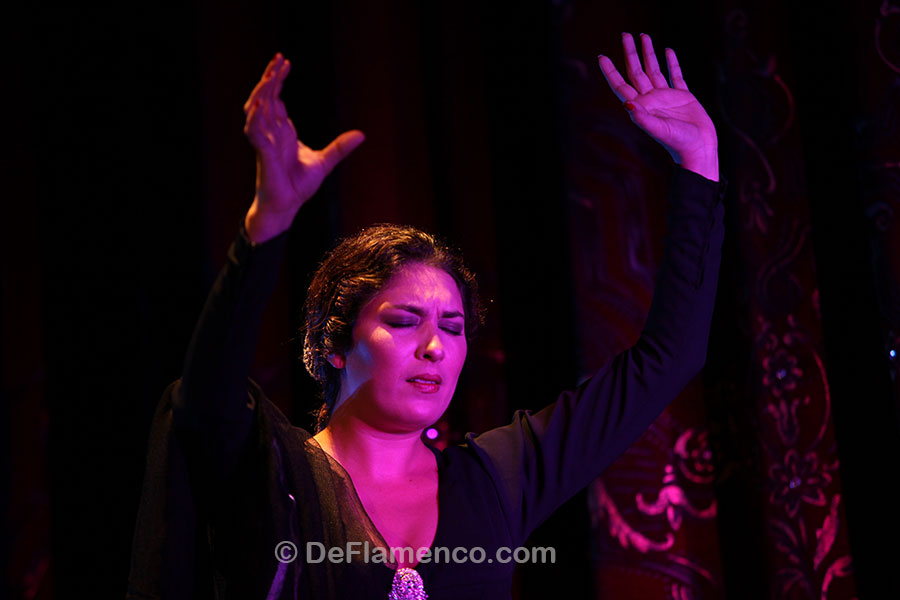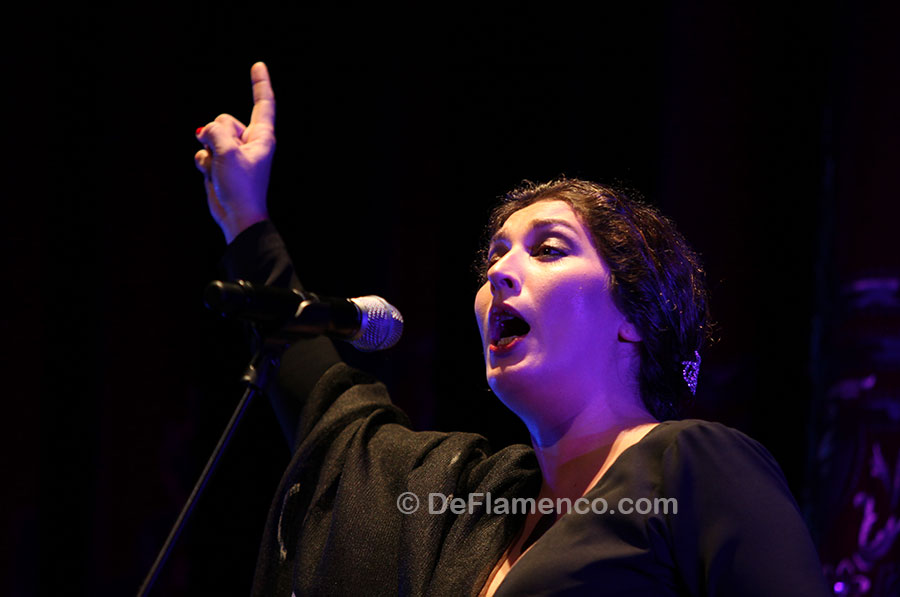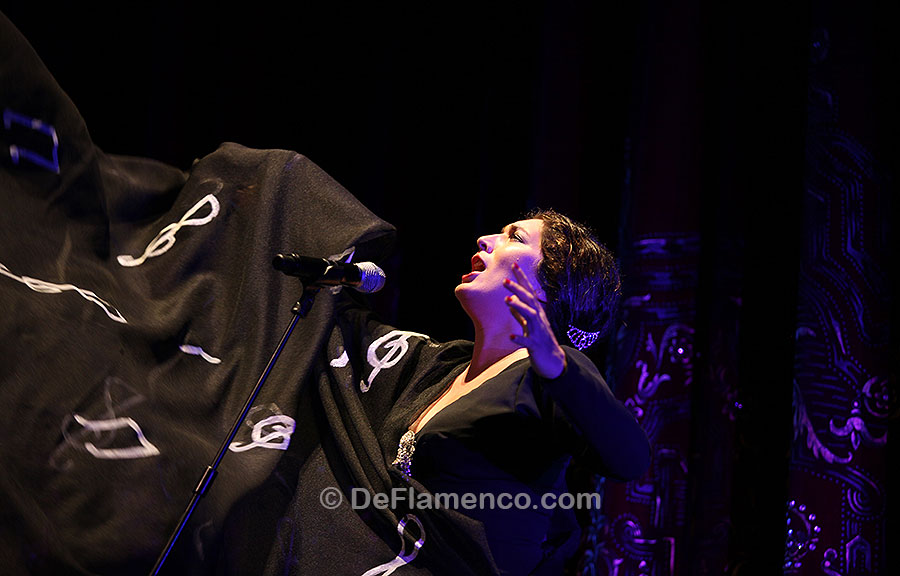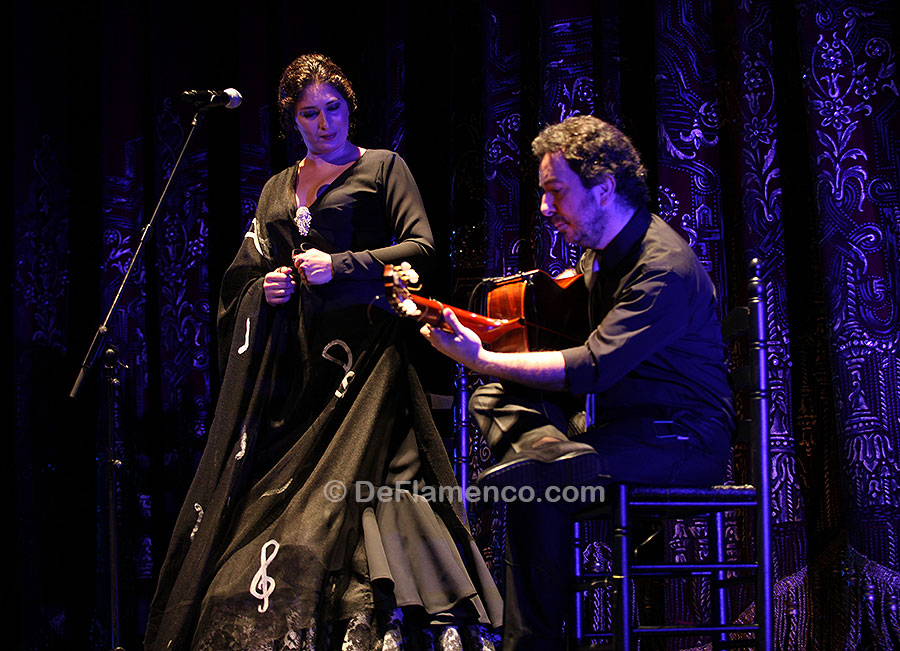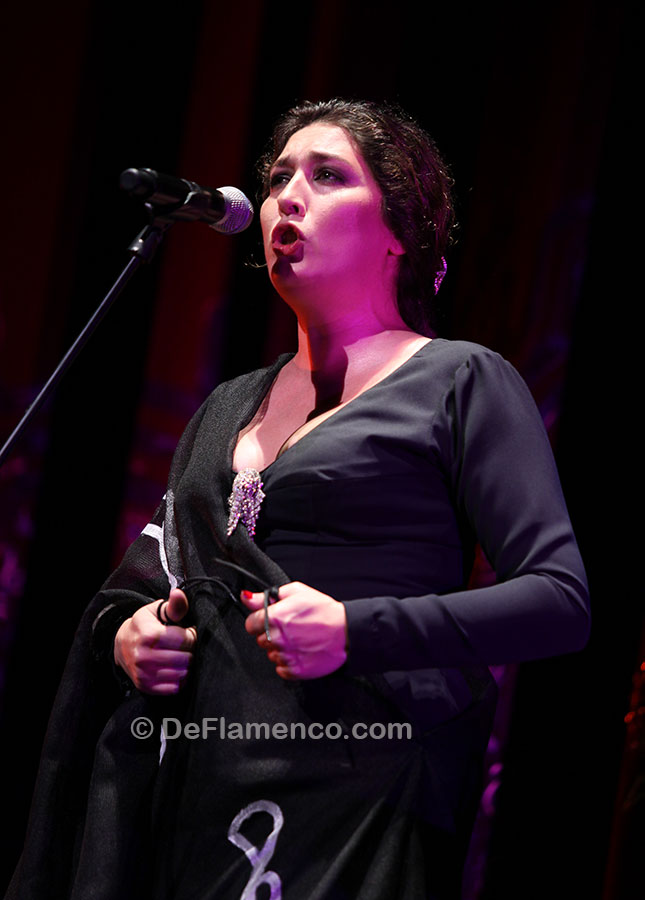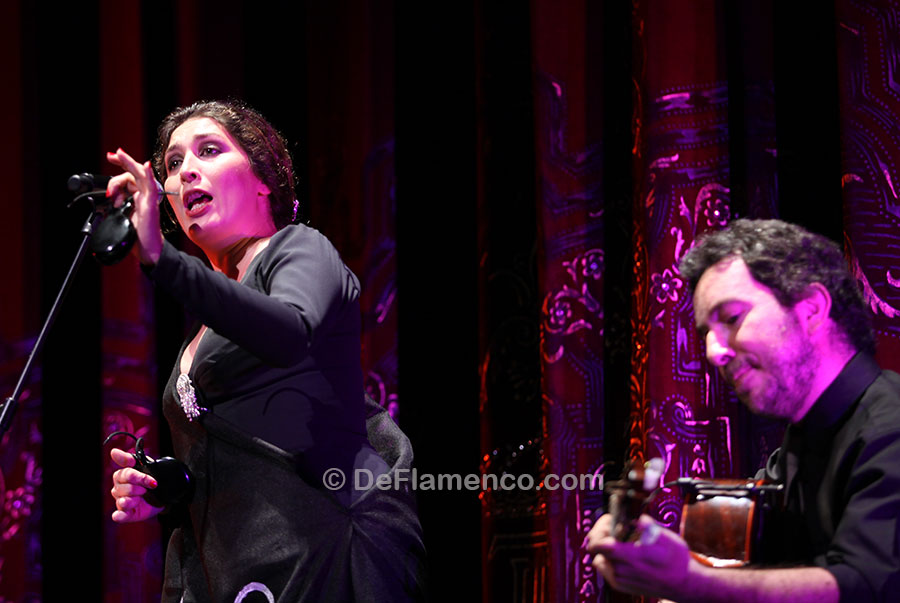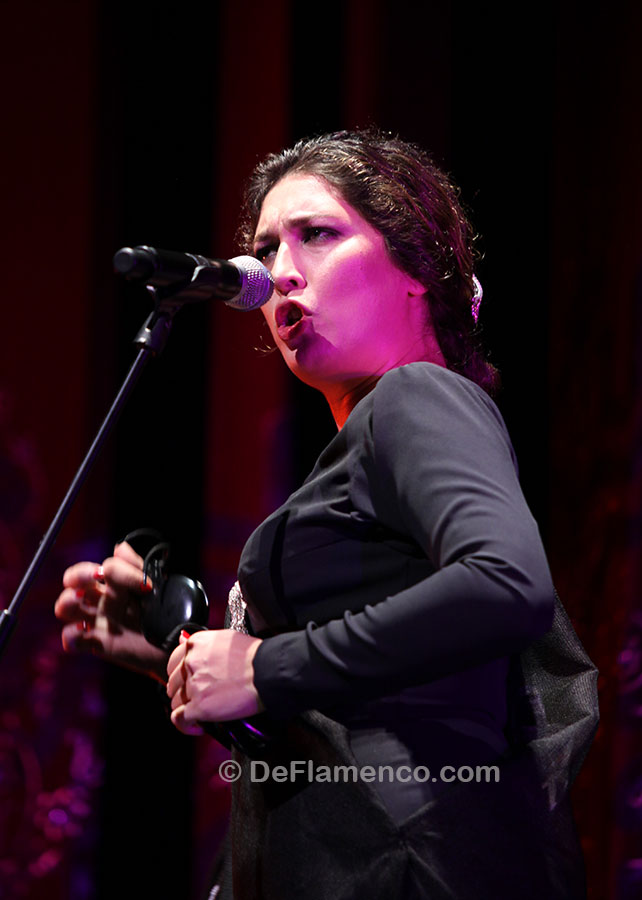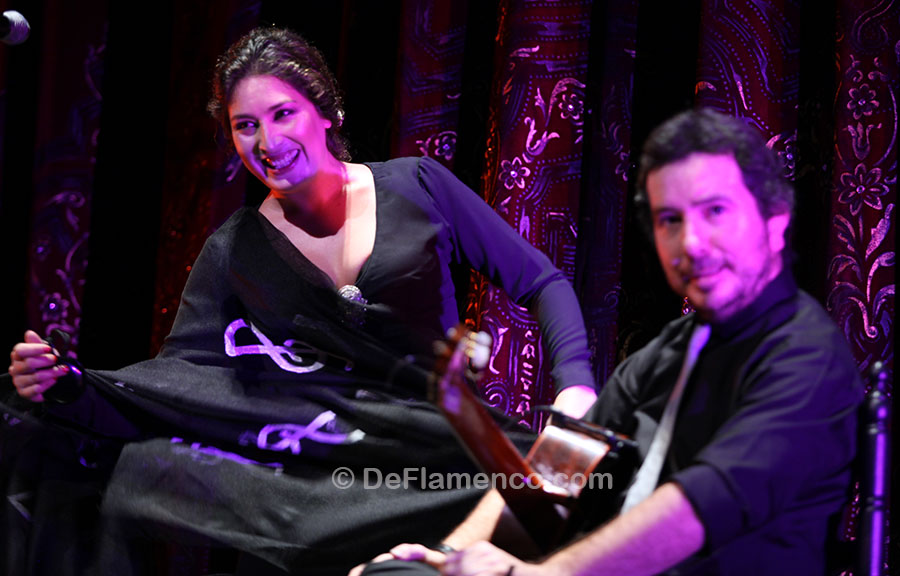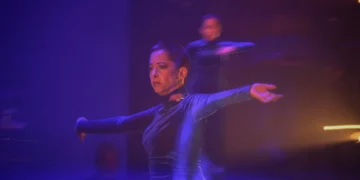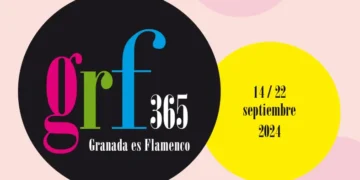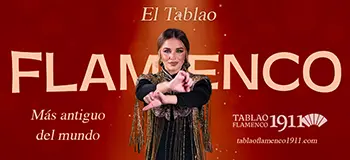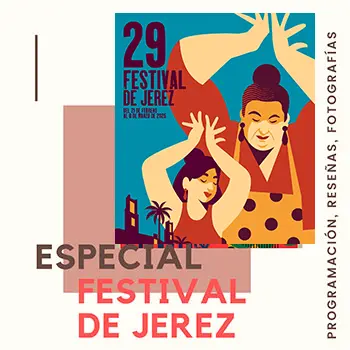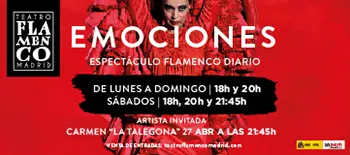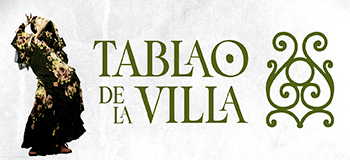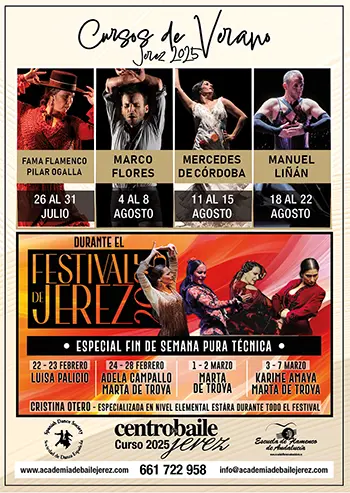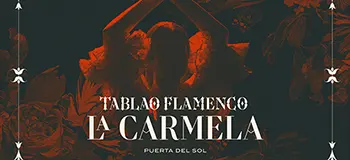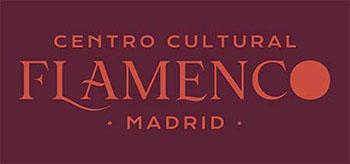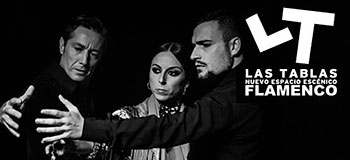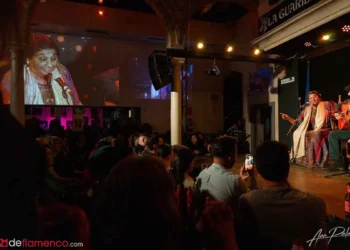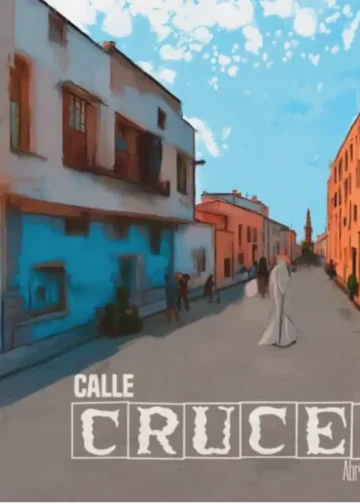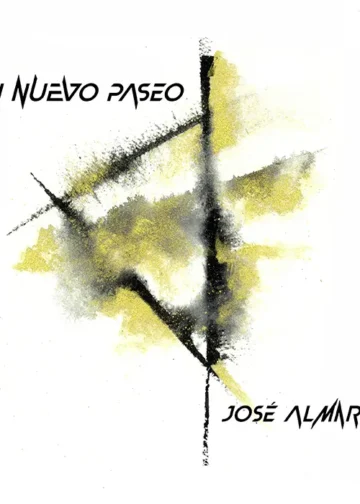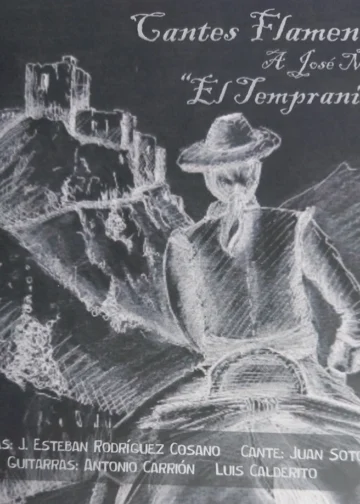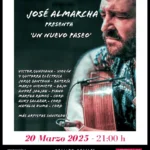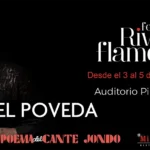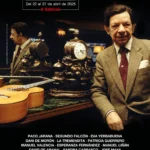Text: Pablo San Nicasio
Photos: Rafael Manjavacas
March 5th, 2013 – Teatro Real de Madrid
Real, Realer and Reality
Cante: Estrella Morente. Guitar. Alfredo Lagos, “Montoyita” y “Monty”. Keyboard: José María Cortina. Bass: Yelsi Heredia. Percussion: Lucky Losada and Popo. Chorus and Palmas: Antonio Carbonell, Ángel Gabarre, Kiki Morente, Rocío Heredia, María Heredia, Remedios Heredia and Victoria Carbonell.
Fancy record presentations at the Teatro Real are becoming a fashion among the highest-paid artists. The venue that used to be strictly off-limits for anything that didn’t have scored sheet music, now sells out to the highest bidder to record a DVD, place a risky bet on a career or simply lay claim to having performed in the greatest temple of Spanish music.
The latter is the case when we consider Estrella Morente’s recital of last week, with the benefit of hindsight. The presentation in Madrid of her record “Autorretrato” was announced way back, a splashy piece of work to judge from the credits; and with the guaranteed presence of most of the collaborating musicians, we can assume the format Estrella offered is in line with the recitals of a normal tour. A standard concert which we will now take a look at. It was more like a bid to ascend to the throne of flamenco. That’s what happened a year ago with Poveda, and in fact, he pulled it off.
The calendar was working against her (with the Festival de Jerez going on, many critics were out of Madrid, plus sporting events at the same hour and tickets that were sky-high), it was only logical there wasn’t going to be a full house, and so it was. But not by much.
Estrella Morente is a performer who likes to bask in the admiration of the masses, parading on and off the stage, walking up and down the aisles. That’s how she began and ended a concert that was overloaded with artificial elements (very flashy lights and canned music, a massive chorus and a heavy dose of pop songs), short on flamenco substance, and which we found superficially laid out in the hour and a half of performance.
Until Alfredo Lagos appeared to fill the night with substance, the pregón and the “Réquiem” sounded more like a Broadway musical than the art of Sacromonte.
Impeccable like we said, Alfredo Lagos who wasn’t even on the program and who accompanied the sevillanas of Estrella who responded perfectly. She shaped the cante to her own design, without forcing it, to communicate her message. It was the third break and the audience was hers. Although it must be said, they weren’t very demanding Tuesday night.
Tientos in the same straightforward line, and tangos “de la Vida”, with the patriarch’s trademark but without provoking the same response of he who had the secret of cante and, mind you, much more talent. The malagueña de Chacón was a sight better.
With a completely histrionic “Montoyita” by her side, Estrella upped the ante in soleá por peteneras (or the other way around), but again her voice was tight in the Levante portion. La seguiriya confirmed that this singer knows how to do things, and has the will to pull them off, but hey people, the level of women’s flamenco singing is shooting up. To the extent of it becoming an urgent matter to sit down and seriously rethink things about her career. That’s the challenge for someone who ought to be offering a much more flamenco program if she really hopes to carry on with the family tradition.
Because it’s clear that as far as being a performing artist (which Estrella is through and through), few people can compete with this woman. And yet the reality, the real truth is that what an objective non-believer saw at the Teatro Real, was a lyrical pop singer with flamenco airs who bases her current successes on an outsized command of the stage, a repertoire which is getting more eclectic all the time and the decisive, though not always compatible legacy of her father.
In the second part the “Estrella” aesthetic led the way to compás, to bulerías, tangos, rumba, choruses and lighting that again propped up the most populist banner of the universe of sound. Fourteen musicians on stage, and a cheering but not ecstatic audience. It was something we’d seen before and which, perhaps ought to be fleshed out with more flamenco, considering the venue. The idea was to take advantage of the occasion, and we would all have been grateful.
Fiesta finale, encore of a traditional Madrid dance, full voice. Possibly the best of the night, when the audience surrendered and we bid farewell to a perfect lady in impeccable white who said she was from Madrid. The white football team also won by a hair…that’s how it goes.





